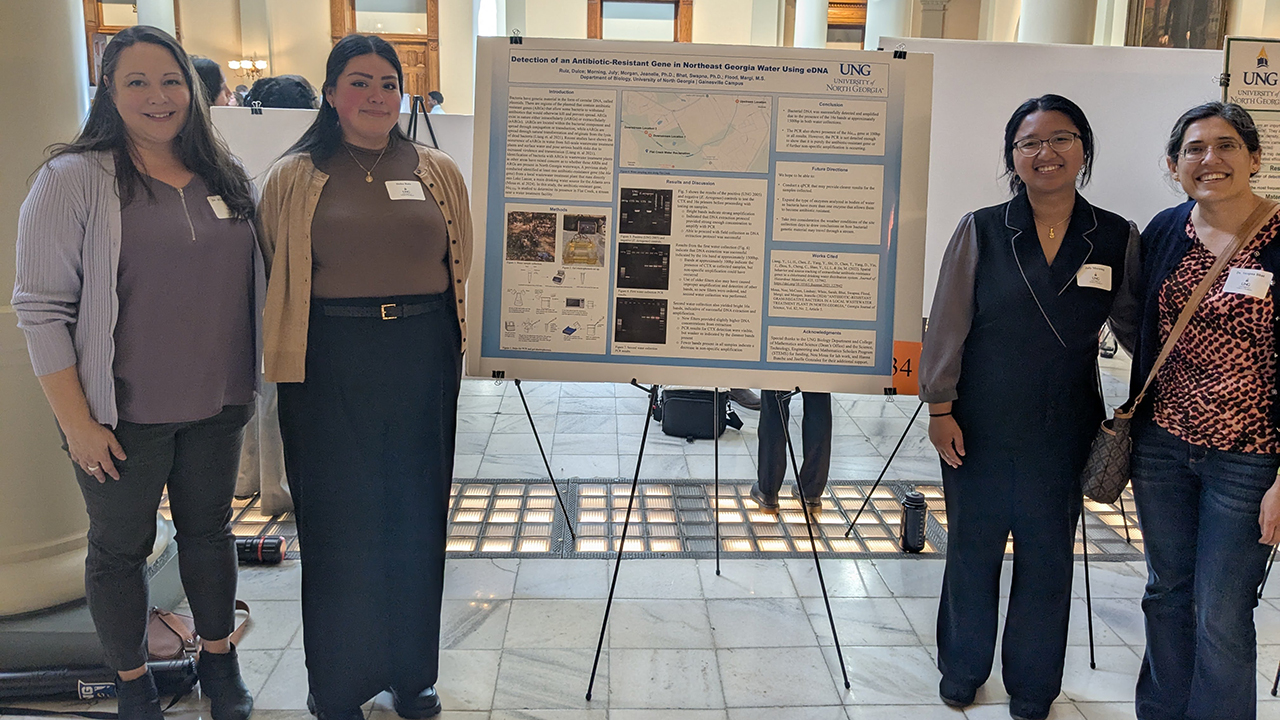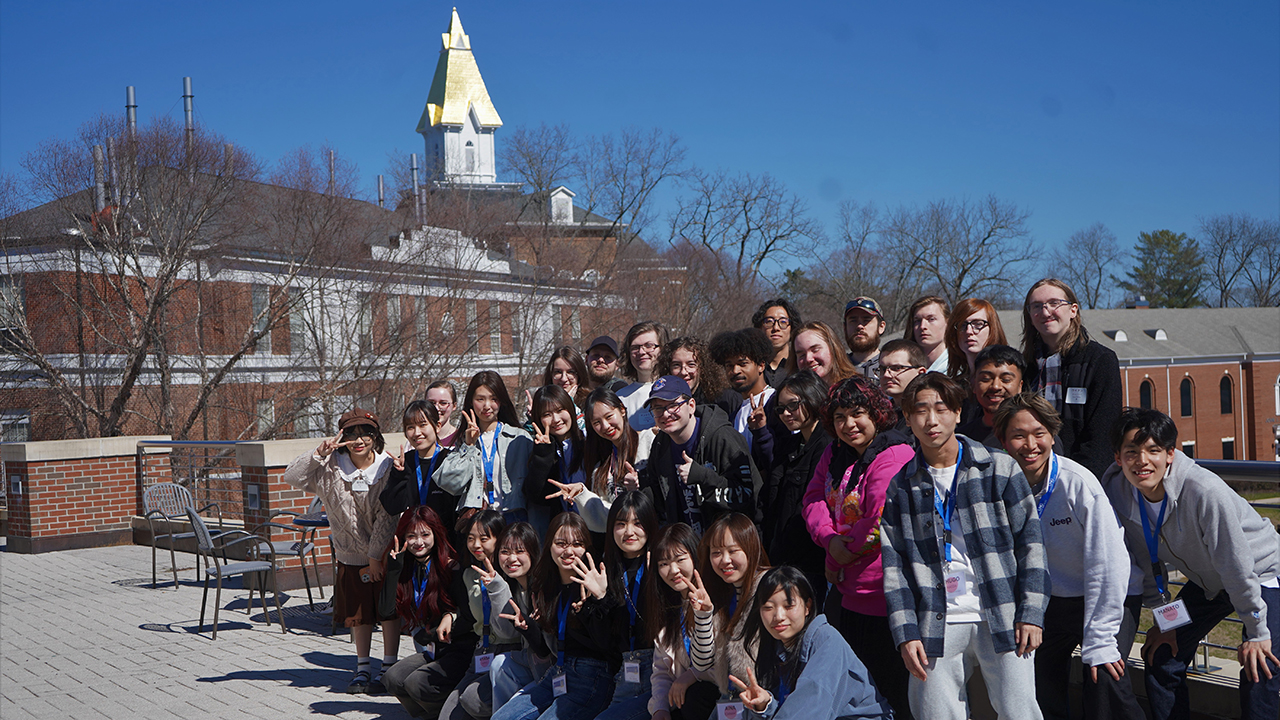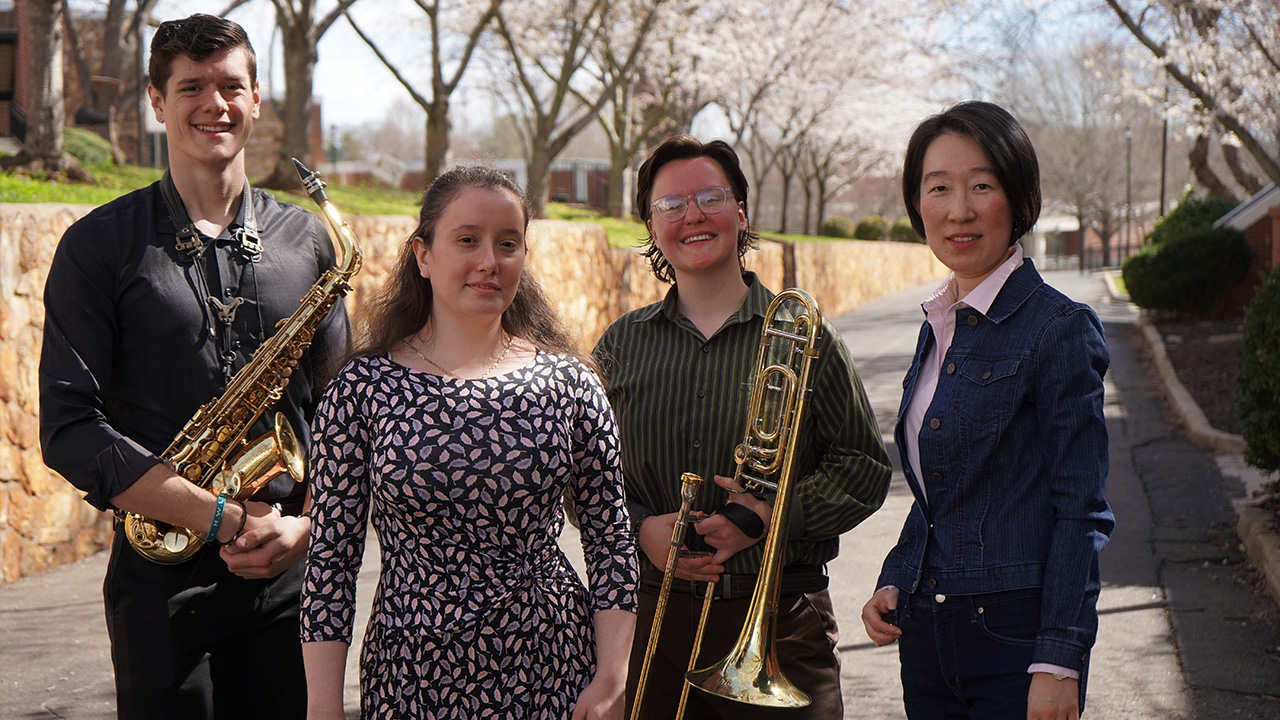Nighthawk Community Connector grows its network and impacts students

Article By: Staff
Dr. Sarah Young knows firsthand how the University of North Georgia (UNG) benefits from partnerships with community nonprofits through service-learning opportunities.
In January 2019, the assistant professor of political science launched the Nighthawk Community Connector, an online portal that unites community organizations with the skills and knowledge of UNG students, faculty, and staff. Users answer a few questions and fill out an information sheet of their detailed needs. Once the information is submitted, Young matches the community partner with UNG faculty, staff and students.
"It's a win-win," Young said. "Students learn through the service-learning opportunities while community organizations reap the benefits of additional help."
In the first month, three entities registered in the portal. Less than two years later, the number jumped to 17, which is a 466% increase.
Dr. Carly Redding, UNG's director of academic engagement, said this success rate prompted the university to incorporate the Nighthawk Community Connector as part of its application for Carnegie Community Engagement Classification.
"As far as the university is concerned, the Nighthawk Community Connector is true community engagement and development," said Redding, associate professor of sociology and human services. "It is essential and can provide an online avenue for UNG to improve the 30-county area that it services."
Dr. Rosaria Meek can attest to its usefulness to her students as well as the community. The assistant professor of Spanish preferred the students in her medical Spanish class learn through real-world scenarios, fully embodying experiential learning.
"There is an incredible need for people who can speak Spanish and interpret for people at medical facilities," Meek said. "I thought, 'What would be a better opportunity to teach medical Spanish and involve a service-learning opportunity as part of the class?'"
But she didn't how to engage the community entities until she contacted Young, who identified a few local entities in need of medical Spanish translation and interpretation. They included Northeast Georgia Health System, Good News Clinics and Georgia Council on Substance Abuse. Meek recommended the institutions to the students, who could choose to volunteer for four hours per week at one.
"They've already shared their experiences, which was useful for the content of the class," Meek said. They also learned professional and personal skills of managing time."
The impact on students who were able to volunteer before the COVID-19 pandemic was immeasurable.
Kaitlyn McDaniel, a junior pursuing a degree in modern languages with a Spanish language and literature concentration, volunteered to help translate for patients at the nonprofit Good News Clinics in Gainesville, Georgia.
"I have learned that is it not just medically specific vocabulary that is required for a medical interpreter," said the 22-year-old from Buford, Georgia. "You have to explain your feelings and emotions and how it's affected you. It's not just the words heart, stomach and numbness. It's explaining the symptoms."
McDaniel's eyes also opened to the problems facing the patients at Good News Clinics. For example, one woman started to cry as she filled out an anxiety and depression questionnaire.
"I wish I could do more than I could," she said.
Meek said UNG's Nighthawk Community Connector helps link her students to groups with a community mission.
"The medical Spanish class was something in my heart that I hoped would contribute to community in Gainesville and the surrounding region," she said. "Now our students have made the leap to help the community."



